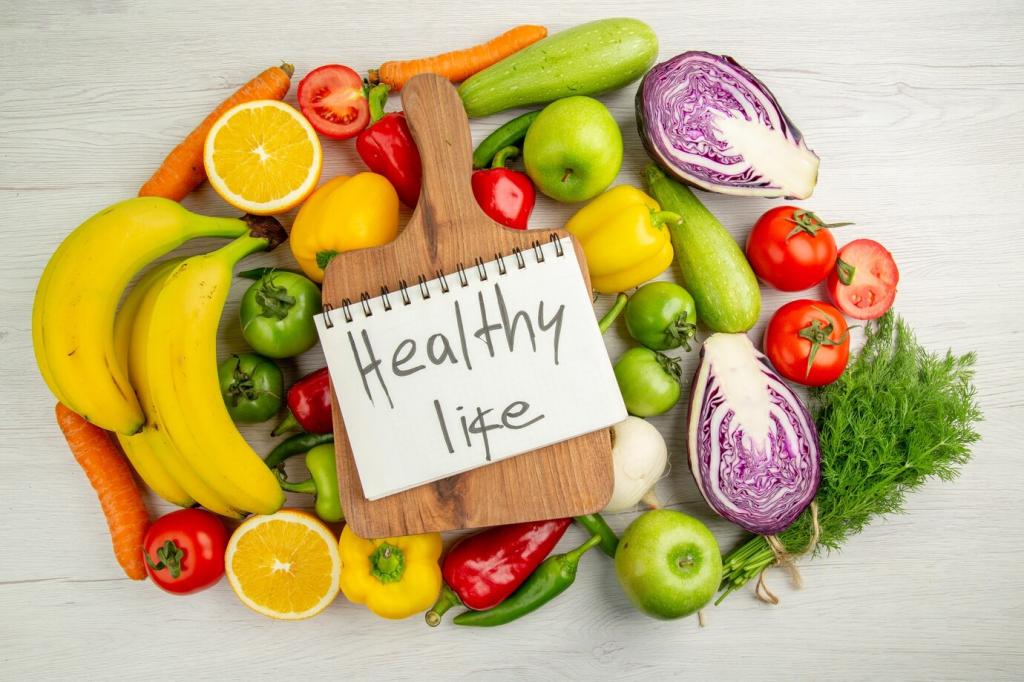Balanced Diet Basics for Fitness Enthusiasts

The Role of Macronutrients in Fitness
Carbohydrates are often misunderstood, but they are an essential energy source for fitness enthusiasts. When you consume carbs, your body breaks them down into glucose, which fuels muscles during high-intensity exercise. Adequate carbohydrate intake before and after workouts helps maintain glycogen stores, preventing early fatigue and enhancing performance. Skimping on carbs can lead to decreased stamina and mental focus, making it harder to achieve exercise goals. Prioritizing complex carbohydrates, such as whole grains and starchy vegetables, ensures a steady release of energy. Simple sugars found in fruits can also replenish immediate energy needs post-exercise. Understanding how your body uses carbohydrates allows you to tailor your intake to match your activity levels for optimal results.
Micronutrients: Small but Mighty
Vitamins: The Body’s Activators
Vitamins act as catalysts for hundreds of bodily functions, ensuring your metabolism, immune system, and cellular repair processes work efficiently. For fitness enthusiasts, B vitamins are particularly important since they assist in converting food into usable energy. Antioxidant vitamins like C and E help fight oxidative stress caused by intense training, reducing muscle soreness and supporting faster recovery. While balanced meals typically provide most of the vitamins you need, specific training regimes or dietary restrictions might require supplementation. Regularly consuming a variety of colorful fruits and vegetables is the best way to cover your vitamin bases and support optimal performance.

Timing Your Meals for Optimal Performance

Eating before exercise provides the necessary fuel to perform at your best and minimizes the risk of fatigue or dizziness. Ideally, a pre-workout meal or snack should combine easily digestible carbohydrates with a moderate amount of protein while remaining low in fat to avoid gastrointestinal discomfort. This meal supplies glucose to working muscles and amino acids to prepare the body for the upcoming stress of training. The timing usually ranges from 1 to 3 hours before exercise, depending on personal tolerance and the nature of the workout. Individual preferences will differ, but experimenting to find your optimal pre-exercise meal can lead to better energy levels and improved performance.

Water is essential for regulating body temperature, transporting nutrients, and removing waste—processes that become even more critical during exercise. Sweat losses can vary greatly depending on the intensity and duration of activity, as well as environmental factors like heat and humidity. Monitoring thirst is a simple indicator, but measuring sweat loss and replenishing fluids accordingly offers a more precise approach. Carrying a water bottle to training sessions and making hydration a consistent habit improves both physical and mental performance. Proactively drinking water before, during, and after workouts supports optimal function and rapid recovery.

Recognizing the early signs of dehydration—such as dry mouth, headache, dizziness, or dark-colored urine—allows you to take corrective action before it affects your workout. Advanced dehydration can lead to serious complications, including muscle cramps, reduced endurance, and heat-related illnesses. Athletes and active individuals are especially susceptible during long or intense sessions. Understanding your personal hydration needs and adjusting your intake based on activity and climate helps to stave off these negative effects, ensuring you stay safe and productive during all activities.

Achieving optimal hydration isn’t just about water—it also involves electrolytes that help maintain fluid balance and prevent muscle cramps. Consuming water-rich foods like fruits and vegetables or using electrolyte-enhanced beverages during especially demanding sessions can further support your hydration needs. Avoiding excessive caffeine and alcohol intake, which act as diuretics, is equally important. Developing a personalized approach that accounts for sweat rate, exercise duration, and specific needs will lead to better hydration outcomes and improved fitness performance overall.
Smart Snacking for Sustained Energy
Purposeful Snack Selection
Snacks provide an opportunity to fill nutritional gaps and keep your metabolism active between meals. For active individuals, snacks should focus on a balance of macronutrients to supply both immediate energy and sustained fuel. Snacks high in protein help manage hunger and aid muscle repair, while those rich in complex carbohydrates top up glycogen stores. Timing snacks around workouts or during periods of increased activity can optimize their benefits, ensuring you have the fuel needed for peak effort and efficient recovery.
Avoiding Empty Calories
While the convenience of packaged snack foods may be tempting, many options are loaded with added sugars, unhealthy fats, and minimal nutritional value. Relying on such snacks can hinder your progress, leading to energy crashes and interfering with body composition goals. Instead, aiming for whole, minimally processed choices like yogurt, whole grain crackers, fresh fruit, or homemade energy bars helps you achieve the nutrient density necessary for vigorous exercise. Conscious snacking habits are as crucial as meal choices when it comes to fueling an active lifestyle.
The Role of Pre- and Post-Workout Snacks
Pre-workout snacks are designed to top up energy stores without weighing you down, often focusing on easily digestible carbohydrates and small amounts of protein. Post-workout snacks help kickstart recovery by delivering nutrients when your muscles are most receptive. Both types of snacks play key roles in maximizing the benefits of exercise and reducing muscle soreness. Timing and content are specific to individual preferences, workout intensity, and goals, making it essential to experiment and find what works best for sustained energy and progress.
Managing Caloric Intake for Fitness Goals
Calculating Your Energy Needs
Each person’s caloric requirements are unique, determined by basal metabolic rate, physical activity level, age, and body composition. The first step in managing intake is establishing your maintenance calories, which is the amount needed to preserve your current weight. Tracking food and using energy expenditure calculators can provide a baseline from which to adjust upwards for muscle gain or downwards for fat loss. Regularly monitoring and tweaking your intake in response to changes in activity and progress helps ensure your nutrition supports your fitness journey.
Strategies for Weight Management
For those aiming to lose fat, creating a mild calorie deficit by consuming fewer calories than you expend is key, but it must be done strategically to preserve muscle mass. Conversely, gaining muscle requires a calorie surplus, but one that’s not excessive to avoid unnecessary fat gain. Success lies in making gradual adjustments, prioritizing nutrient-dense foods, and paying attention to satiety and hunger signals. A balanced approach minimizes the risk of metabolic slowdown or unwanted plateaus, making it easier to stick to your plan over the long term.
Avoiding the Pitfalls of Extreme Dieting
Restrictive diets and extreme caloric deficits can backfire, leading to muscle loss, hormonal imbalances, and decreased performance. Even short-term gains can be quickly lost if the diet isn’t sustainable, and rebound weight gain is common. Instead, viewing nutrition as a long-term lifestyle approach rather than a quick fix yields more consistent and lasting results. Setting realistic expectations, enjoying a variety of foods, and building flexibility into your eating plan ensures that achieving and maintaining your fitness goals is both enjoyable and attainable.
Meal Planning and Preparation Success
Effective meal planning removes uncertainty around what to eat, making it easier to meet macronutrient and micronutrient needs. By mapping out meals and snacks in advance, you reduce the stress and time pressure associated with daily food decisions. Planning also allows you to shop smarter, save money, and minimize food waste. Having nutritious options ready also means you’re less likely to resort to unhealthy choices, supporting steady advancement toward your fitness targets.
Overcoming Common Challenges
Eating outside the home can pose challenges to sticking with healthy habits, from peer pressure to limited healthy options on menus. Strategies such as scanning menus ahead, choosing meals that prioritize lean protein and vegetables, and practicing portion control can help you make smarter choices without feeling deprived. Communicating your goals with friends or family and allowing flexibility for occasional indulgences also fosters a positive social experience while staying on track with your nutrition.
